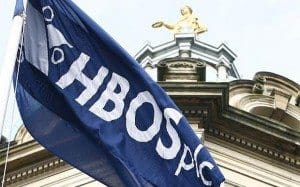
Doubts grow over release of long-awaited HBOS scandal report as Lloyds resists full disclosure
An independent review into whether Lloyds Banking Group concealed a £1 billion fraud linked to HBOS may never be fully disclosed, prompting accusations that the bank “cannot face the truth.”
The review, led by Dame Linda Dobbs, examines Lloyds’ response to a fraud scandal at the Reading branch of HBOS. The incident, which emerged after Lloyds rescued HBOS in 2009, involved bankers and consultants exploiting loose credit policies to siphon funds from the bank. Lynden Scourfield, a key figure in the scandal, arranged for struggling businesses to hire consultants from Quayside Corporate Services, a group that profited handsomely from these arrangements. The scam devastated scores of small and medium-sized businesses and left hundreds more reeling from the fallout.
The scandal culminated in 2017 when six individuals were convicted, and Judge Martin Beddoe remarked that victims were left “cheated, defeated and penniless.” Since April 2017, Dame Linda has been investigating claims that Lloyds had concealed its knowledge of the fraud. Initially, the review was expected to be completed within a few months, but more than seven years later, it remains unfinished.
Members of the Treasury committee had anticipated receiving the full, unredacted report, but Lloyds now appears to be backtracking on this commitment. A spokesman for the bank stated that it would only share the “findings” of the review with MPs, leading to confusion over what will actually be disclosed. This stance contrasts with previous statements made in 2018 by then-committee chair Nicky Morgan, who welcomed Lloyds’ “commitment” to provide the independent review in full. Morgan had expected MPs to receive the same report as the Financial Conduct Authority (FCA).
Dame Linda confirmed that the review would be prepared in a way that allowed it to be made public, but it is Lloyds’ decision whether to share the report or limit access to selected findings. The lack of clarity has prompted concern from those closely involved in the case. Paul and Nikki Turner, whose music publishing business Zenith was destroyed by Quayside, played a key role in uncovering the fraud. The couple, who met with the review team 16 times and submitted over 10,000 documents, said they expected full transparency.
“What does Lloyds mean by ‘findings’? It’s clear as mud,” said Paul Turner. “If the bank is not to provide the report itself to MPs and the public after all this time and enormous cost, it is a sad reflection that they simply cannot face the truth.”
The Treasury committee, now led by Dame Meg Hillier, declined to comment on the bank’s recent position, while Morgan did not respond to requests for her views. Lloyds, meanwhile, has refused to clarify whether it believes there was a misunderstanding over its earlier assurances to provide the report.
The fraud, initially estimated to have cost £245 million, is now believed to have caused losses closer to £1 billion, according to an internal review commissioned by Lloyds. Despite this, the bank’s current stance on the disclosure of the Dobbs report has cast doubt on whether the full details of its handling of the scandal will ever be made public, prolonging the uncertainty for victims and campaigners seeking accountability.


